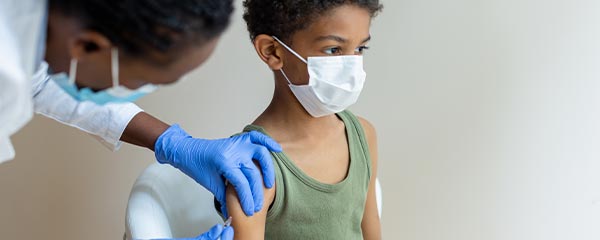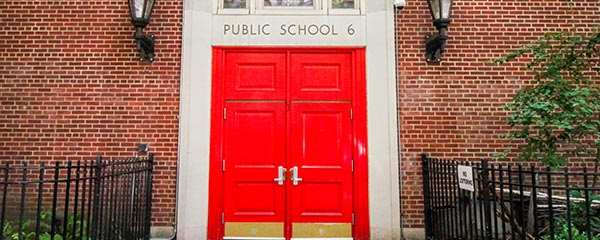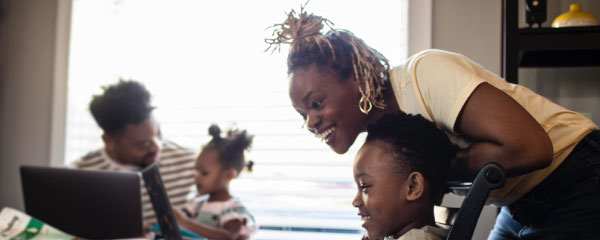Story Highlights
- Satisfaction with U.S. education has slumped to 42%, vs. 51% in 2019
- Recent decline seen exclusively among Republicans/Republican leaners
- Most parents of both parties remain satisfied with own child's education
WASHINGTON, D.C. -- Americans have become less content in recent years with the quality of the nation's K-12 education. The 42% who say they are satisfied today is the lowest measured in the past two decades by one percentage point and the second-lowest reading in Gallup's 23-year trend. Americans' satisfaction with schools was at a near-record high of 51% in 2019 before dropping slightly each year since.
At the same time, parents of children attending kindergarten through grade 12 remain largely content with their oldest child's education. The 80% who are completely or somewhat satisfied is slightly improved from the 73% measured a year ago and exceeds the average of 76% that Gallup has recorded since 2001.
Gallup has tracked Americans' and parents' particular perspectives on K-12 education annually each August as part of its Work and Education survey. The latest installment was conducted Aug. 1-23 as students were getting back to school in some parts of the country and enjoying the last days of summer vacation in others.
Nearly One in Four Are Completely Dissatisfied With U.S. Education
Gallup asks respondents for their views of K-12 education on a four-point scale, going from completely satisfied to completely dissatisfied. This shows that while about four in 10 Americans are broadly satisfied with public education, just 9% are completely satisfied. Meanwhile, 23% are completely dissatisfied, and 32% are somewhat dissatisfied. This means that more than twice as many Americans are completely dissatisfied as completely satisfied.
The picture is far more positive for parental satisfaction with their oldest child's education, as 32% are completely satisfied and just 6% are completely dissatisfied. The bulk of parents, 48%, are somewhat satisfied.
GOP Satisfaction With Education Has Plunged Since 2020
There is no ambiguity about the source of the recent decline in public satisfaction with education, nationally. It entirely reflects reduced satisfaction among Republicans and Republican-leaning independents since President Donald Trump left office, while Democrats' satisfaction has remained fairly stable.
Neither party has ever been overwhelmingly positive about the quality of K-12 education in the country, but from 2017 to 2020, they expressed similar levels of satisfaction -- on average 46% of Republicans/Republican-leaners and 50% of Democrats/Democratic-leaners were satisfied. Republicans' satisfaction dropped to 35% last year and is 30% today, while Democrats' has been in the 51% to 57% range.
The partisan differences are less pronounced in parents' ratings of their own child's education, although Republican/Republican-leaning parents (74%) are a bit less likely to be satisfied than Democratic/Democratic-leaning parents (85%). Republican parents' satisfaction is similar to their average satisfaction since 2001 (77%), while Democrats' is slightly higher than their 76% average.
Lack of Academic Rigor Leads Educational Concerns
The latest poll provides new insights into Americans' dissatisfaction with education, for the first time asking dissatisfied respondents to state their reasons.
The most prominent type of response, by far, involves concerns about the rigor of curriculum or teaching methods. Specifically, 15% mention poor or outdated curriculum, 12% believe U.S. education is outranked by other countries, and 11% cite failure to teach the basics -- reading, writing and arithmetic. A total of 56% of respondents cite these or another more specific concern about the quality of teaching or curricula.
The next most common theme, raised by 23% of respondents, is that schools or students suffer from a lack of resources. Chief among these is mentions of unequal access to quality education for low-income students or due to racism (8%). Others mention lack of school funding (6%), low teacher pay (4%), lack of quality teachers (4%), understaffing (4%) and overcrowding (2%).
Seventeen percent of respondents are focused on perceived political agendas present in schools. These include 10% believing that "political agendas," generally, are being taught, with 4% citing transgender/sex education specifically and 3% citing critical race theory.
Different aspects of the school or educational climate, such as lack of discipline and insufficient attention to students, are named by 15%.
Republicans and Democrats who are dissatisfied with the quality of K-12 education are aligned in identifying problems with curriculum or teaching as the primary reason. Roughly two-thirds of each partisan group names something in this category of concerns.
Beyond the bipartisan focus on academic rigor, Democrats are far more concerned than Republicans about school resources being lacking, while Republicans are much more likely to cite concerns about political agendas entering the classroom.
Bottom Line
The nation's primary and secondary schools have experienced unprecedented disruption over the past three years as they adapted to teaching during the pandemic and were swept into partisan political fights over certain social issues.
Gallup's trends suggest that Americans' satisfaction with the quality of education provided to the nation's K-12 students has declined, but only slightly within the narrow range recorded since 2001. And the decline has occurred exclusively among Republicans and Republican-leaning adults.
Meanwhile, parents of school-aged children across both party groups remain largely satisfied with their own child's education.
To stay up to date with the latest Gallup News insights and updates, follow us on Twitter.
Learn more about how the Gallup Poll Social Series works.



